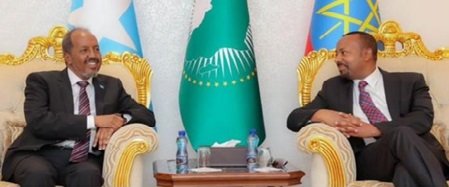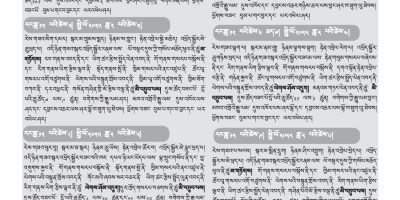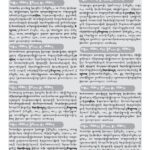By Befikadu Bogale, Institute of Foreign Affairs (IFA).
Background
If the Ankara Declaration between Ethiopia and Somalia signed on 11 December 2024 has brought vibes of hope and surprise or displeasure, President Hassan Sheikh Mohamud’s (HSM) visit to Addis Ababa on 11 January 2025 has furthered the tide in either directions. The official visit and the subsequent bilateral discussion centered on three issues: enhancing diplomatic relations, strengthening security cooperation, and promoting economic ties.[1] In diplomacy realm, the two countries agreed to restore and enhance the bilateral ties via full diplomatic representation. This aims to restore the low in the diplomatic relations between the two countries after the Ethiopia-Somaliland MoU where Somalia subsequently expelled Ethiopian Ambassador from Mogadishu, ordered closure of Ethiopian consulates in Hargeissa and Garowe, and recalled its Ambassador from Addis Ababa.[2] The countries also agreed to closely cooperate at multilateral and regional forums using their respective diplomatic missions therein. This could help the two countries cooperate and benefit from key current realities such as the Somalia’s UNSC membership.

The two countries also agreed two strengthen their security cooperation on grounds that strong cooperation between them is crucial for the stability of the region, and that the two countries face serious and evolving threat from the extremist militant groups. Thus, they agreed to coordinate efforts to improve regional relations, and strengthen cooperation between their respective security agencies. As regards to economic integration, the two countries agreed to work to expand infrastructure linkages to foster trade, investment and other economic relations. This clearly aligns with the ‘neighbors first’ foreign policy focus of Ethiopia which constitutes regional integration and cross-border infrastructure connectivity as its key aspects.
Factors for the Rapprochement
Understanding the factors that motivated the two countries to engage in another major direct diplomatic venture after the Ankara meeting should take into account interplay of domestic and external factors. Domestically, rapprochement with Ethiopia may give HSM some liveliness for his prime project: the constitutional reform that focuses on electoral system reform towards one person one vote system. For this to succeed, ensuring continued diplomatic and economic support of Turkiye, and at least holding the status-quo regarding the country’s security situation including presence of Ethiopian soldiers are crucial. It is understandable that Ethiopia will not easily leave Somalia and/or leave in its own way than in a way and time preferred by Somalia. Either ways, HSM can’t afford Ethiopia’s withdrawal from Somalia these days as it may have disruptive effect to his regime. In addition, the battle of Ras Kamboni[3] may have taught the Federal Government of Somalia (FGS) a lesson that its forces are far weaker to subdue the possible challenges from the Federal Member States (FMS) and Al-shabaab (AS) in the advent of possible show-down.
Ethiopia needed a way to soften the aggressive political and diplomatic moves by Somalia that may have negative effect for its domestic peace efforts such as the transitional justice and the DDR, upcoming major events such as the 38th AU Assembly meeting, the burgeoning re-engagement with the Western countries and international institutions including financial inflows associated with the economic opening-up measures. Relatedly, the new government in Somaliland is yet to show a clear picture of its foreign policy, and Ethiopia have to use this time of transition to show its fundamental intent of access to the sea via peaceful means. The rapprochement shows Ethiopia’s commitment for dialogue, and indicate that Ethiopia is not stuck to a particular territory or country in its pursuit of the access to the sea agenda but ready to engage with any of its neighbors.
Externally, Turkiye might have pressured the two countries to continue their bilateral diplomatic engagement to cement the Ankara Declaration. President Erdogan and Turkiye are increasingly pursuing proactive diplomatic and military strategies in the Middle East and the Horn of Africa. Turkiye’s increased geopolitical endeavors may mean Ethiopia-Somalia case has to be a case done as Turkiye have to focus on consolidating its success in Syria, and on mediating between Sudanese warring parties to end the civil war in Sudan. In addition, defeat of the FGS forces including the Turkiye trained elite unit in Ras Kambooni may have indicated that HSM has setbacks and peace with Ethiopia is a major way forward for stability of Somalia. Furthermore, despite recent improvements in the Turkiye-Egypt relations, the two countries are still regional rivals and Turkiye may not want to have a strong Egyptian presence in Somalia. Thus, peace between Ethiopia and Somalia offsets Egypt from Somalia and ensures Turkiye’s significant influence therein.
Implications
The resurged bilateral relations between Ethiopia and Somalia have multiple implications. First, the rapprochement is a diplomatic victory for both countries. It has signaled the two countries and their respective leaders are much towards negotiation and amicable settlement of disputes. Notable, the AU has praised the meeting as a milestone underlining it is crucial for advancing regional peace, stability and shared prosperity in the Horn of Africa.[4] Particularly, the meeting aligns with Ethiopia’s ‘neighbors’ first policy, the stated desire to pursue its access to the sea agenda via peaceful means, and provides impetus in light of the forthcoming AU Assembly meeting. It also signals that Ethiopia has become Turkiye’s reliable and strategic friend. Noteworthy, Ethiopia is not dragged into a high-level confrontation despite the persistent provocations by Somali elites, media propaganda, axis formation and the accusations at the various multilateral forums.
Secondly, it further solidifies Ethiopia’s reinvigorated quest for access to the sea. Neither the Ankara Declaration nor the Addis Ababa communique undo the MoU with Somaliland. This is despite months of insistence that there will be no talk without the cancellation of the MoU. Thus, the MoU stands as a counterweight for any failure to deliver the promises on the side of Somalia. In addition, Egypt’s Foreign Minister’s assertion that they will not accept any military presence in the Red Sea from the non-littoral state may show his country’s fear that Ethiopia-Somalia rapprochement is comprehensive that may include Ethiopia accessing the Red Sea and Indian Ocean waters in collaboration with Turkiye.
Thirdly, the rapprochement may help Ethiopia to corner Egypt and Eritrea as spoilers of peace in the region. Regional organizations such as the IGAD and the AU are very likely to criticize any attempt to jeopardize the peace. Turkiye may not be happy if Egypt takes any significant measure that may offend Ethiopia and could led to backsliding in the Ethiopia-Somalia relations. In this connection, Ethiopia not only managed to lower down Egypt’s possible significant military deployment in Somalia but also assured its own participation in the AUSSOM. Egypt has been bolder or aggressive and could ‘legitimately’ claim a presence in the post-ATMIS peace and security arrangements. Thus, the realistic measure for Ethiopia has been to minimize Egypt’s level of military presence along with its own continued presence in Somalia. These has been almost achieved and Eritrea have been effectively left out from any direct military involvement in Somalia.
Fuzzy Future
While the meeting and the rapprochement has brought a wind of hope, there are many unknowns and hurdles ahead. One of the immediate hurdles may be related to the AUSSOM. Notable, Somalia’s deputy Foreign Minister (FM) has stated that the allocation of troops has been distributed and there is no additional slots.[5] Thus, Somalia may use this as a leverage on the negotiations regarding Ethiopia’s participation in the AUSSOM. This may be further complicated given the inconsistencies between the President, the FM, the deputy FM and the minister of defense among others. Accordingly, Ethiopia may face obstacles in negotiating the number of its soldiers and areas of its deployment in Somalia. The FGS leadership may insist that Ethiopian soldiers shall be deployed only jointly with contingents from other troop contributing countries (TCCs). HSM may request support from Ethiopia in his drive to exert control over the FMS, particularly against Jubaland and Puntland.
Another possible source of disruption relates to the fact that HSM faces opposition from individuals and groups within and outside the government. With national election coming, the key Somali political figures such as former president Sheikh Sherif are using any opportunity against HSM. In addition, the praise for Turkiye is fading and there are increasing criticisms towards its economic expansions in Somalia and the political-diplomatic efforts including the Ankara Declaration. Furthermore, Egypt is not happy with the rapprochement and could take disruptive political-diplomatic and military measures. This may involve use of some Somali politicians and Eritrea as proxies, and also attempts to bring anti-Ethiopia agendas to the attention of influential countries and the regional and global multilateral institutions.
The Ways Forward
In light of the aforementioned issues, Ethiopia shall pursue multifaceted strategy to sustain the diplomatic gains in particular and its interests towards Somalia in general. First, Ethiopia shall insist certain issues regarding the AUSSOM. Ethiopia should maintain and insist on the minimum number of its troops and the areas of its deployment in Somalia. Concurrently, Egypt should not be allowed to deploy its troops in large numbers and most importantly in the bordering areas of the HirShabelle, Southwest and Jubaland states. This can be done by diplomatically airing Ethiopia’s understandable concern over Egypt’s ulterior motives and also the destabilizing effect of any such Egyptian deployment to the TCCs, the AU, and the UN. Particularly, Kenya and Uganda and other IGAD states need to be consistently informed about Ethiopia’s firm position against the deployment of countries with the intent to destabilize the region. This may indirectly set pressure on the FGS as it often boosts the two countries as top troop contributors for the AUSSOM. The political-diplomatic effort by Ethiopia may drag any further engagements with Somalia and also the post-ATMIS efforts of the AU. Nonetheless, there is an urgent need to signal to FGS and other stakeholders that Ethiopia is firm its position on the matter.
Secondly, Ethiopia should strengthen its relations with key FMS in favor of the FGS. There is wider public support to Ethiopia, and opposition to Egypt, in some of the FMS given the significance of ENDF soldiers in securing the areas, and also the supports to the regional and local administrations.[6] This shall be further cemented by keeping the balance between the FGS and the FMS. For instance, the FMS may be encouraged to demand guarantees to the right to self-determination in light of the ongoing constitutional reform including a separate federal and regional elections as a more enduring way of sustaining their autonomy which basically aligns with Ethiopia’s interest in Somalia.
Thirdly, it is important to strengthen the political-diplomatic and other engagements with Turkiye. Turkiye has a well-articulated understanding of Ethiopia’s quest for access to the sea as shown via holistic assertions such as “…assured access to and from the sea…” and “…reliable, secure and sustainable access to and from the sea…” in the Ankara declaration.[7] Turkiye has much leverage over HSM and Somalia currently. Turkiye has invested much in Somalia including the ongoing gas exploration and fishing.[8] It is also investing in the strategic Hobyo port which is currently under construction.[9] These investments are susceptible to any instability in Somalia, which may emanate from factors such dispute between Ethiopia and Somalia, and the resurgence of the AS. In addition, Turkiye maintains much political leverage over HSM and FGS leadership given, among others, thousands of soldiers trained in Turkiye, its largest overseas military base in Mogadishu, and control over the Mogadishu port. Turkiye is also a NATO member state, a factor that may strengthen US supporting the influence of Turkiye in the Horn. Thus, Ethiopia needs to enhance its political-diplomatic and other engagements with Turkiye in relation to Somalia and beyond. For instance, Ethiopia and Turkiye may conduct joint anti-terror operations. This may gradually expand into joint or trilateral naval exercise. Moreover, shared threat of the extremist militant groups against Ethiopia and Somalia has been indicated in the communique. Thus, Ethiopia may use the opportunity to show its capacity to Turkiye, the UAE and the US in fighting the AS and other radical groups, as well as its readiness to contribute to the efforts for maritime security in the Red Sea and Gulf of Aden regions.
About the Author
Befikadu Bogale, Researcher at the Institute of Foreign Affairs (IFA).
















